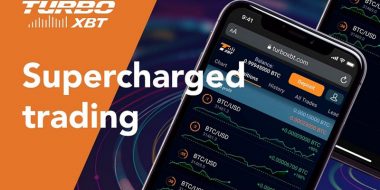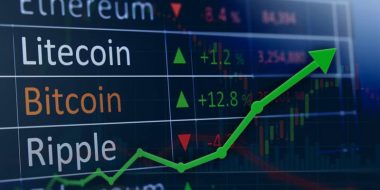Decentralized exchanges represent the present of trading and assets exchange, but Bancor is, without the slightest hint of a doubt, the future. After all, a platform that can accurately determine exchange rates and can manage several cryptocurrencies is a very useful resource, and that is the contribution that Bancor is about to provide to our current financial outlook; not for nothing the company achieved a record-breaking ICO, as in this Forbes’ Bancor article.
In a world dominated by digital coins and tokens, it is imperative to have a reliable network to receive, send, convert and manage funds from distinct tokens. We are far from the days in which Bitcoin was the one and the only cryptocurrency widely accepted: Ethereum, Ripple, Bitcoin Cash, Dash, Litecoin, Monero, Dogecoin, Lisk, Storj, and hundreds more are now widespread propositions with solid projects and foundations for the future.
The Bancor protocol can be the best and most accountable tool to receive, send and administrate funds from all of the previously mentioned tokens and more. It charges no fees or commissions for cryptocurrency conversions, there is no spread, and it has a predictable and manageable price slippage. More importantly, the liquidity problem can be solved by Bancor, explained on Bitcoinist.com, and is associated with our times.
Decentralized Exchanges and their Issue with Liquidity
The term liquidity, when applied to the financial and trading universe, is the extent to which a determinate market can permit assets to be acquired and sold at stable costs. If a certain platform has low liquidity, then the market will be highly volatile as a result, and the opposite scenario is also true: higher liquidity leads to low volatility because the prices do not fluctuate significantly.
It is widely assumed that cash is the most liquid asset because the market will most likely be able to absorb transactions involving cash and the value of the dollar, or the currency used, will likely not change much, if at all.
Yet, if a transaction is completed used Bitcoin or one of the several hundreds of altcoins now available in the market, the effect on its value will be felt considerably because the market has almost no liquidity: each crypto has a determinate amount of tokens available in a certain trading platform, so it could run out and cause the buyer to pay a higher percentage just to complete the transaction.
All things considered, Bancor is less volatile than DEX. There is definitely a liquidity challenge that decentralized exchanges need to overcome, one that the Bancor protocol can solve rather easily.
Automatic Price Assignment by Bancor
Bancor is a protocol that promotes and allows automatic price assignments and a liquidity mechanism that is autonomous for crypto coins on smart contract blockchains. The Smart Tokens are connected to a broader network holding balances of other cryptocurrencies, allowing the instant purchase or liquidation of Smart Tokens to any of the connected assets while directly making use of the smart contract. The price will be continuously calculated to keep up with the market behavior, and this process is completed by using a formula that balances buy and sell volumes.
What the Bancor protocol does is letting any person create a new type of cryptocurrency called Smart Token. This currency has the capability of storing and trading other cryptocurrencies.
That process allows smart contracts of these tokens serve as their own market makers, which are the entities that provide the needed liquidity to make other participants able to buy and sell at any time, no matter how much they need to purchase or sell.
It should be noted that Smart Tokens are compatible with the ERC20 standard, and they can be used by any software that supports it. Each one has a reserve balance of one or more ERC20 tokens, allowing anybody to trade with other tokens.
Bancor takes away the need for third parties in cryptocurrency trading. The best thing about this protocol is that every Smart Token has liquidity, at any price, making it the perfect solution for this ever-present issue in asset trading.
Sources: forbes.com / investopedia.com
Related Posts
« 3 football bets you shouldn’t miss in 2018 Should you invest in the stock markets or in derivatives markets right now? »











